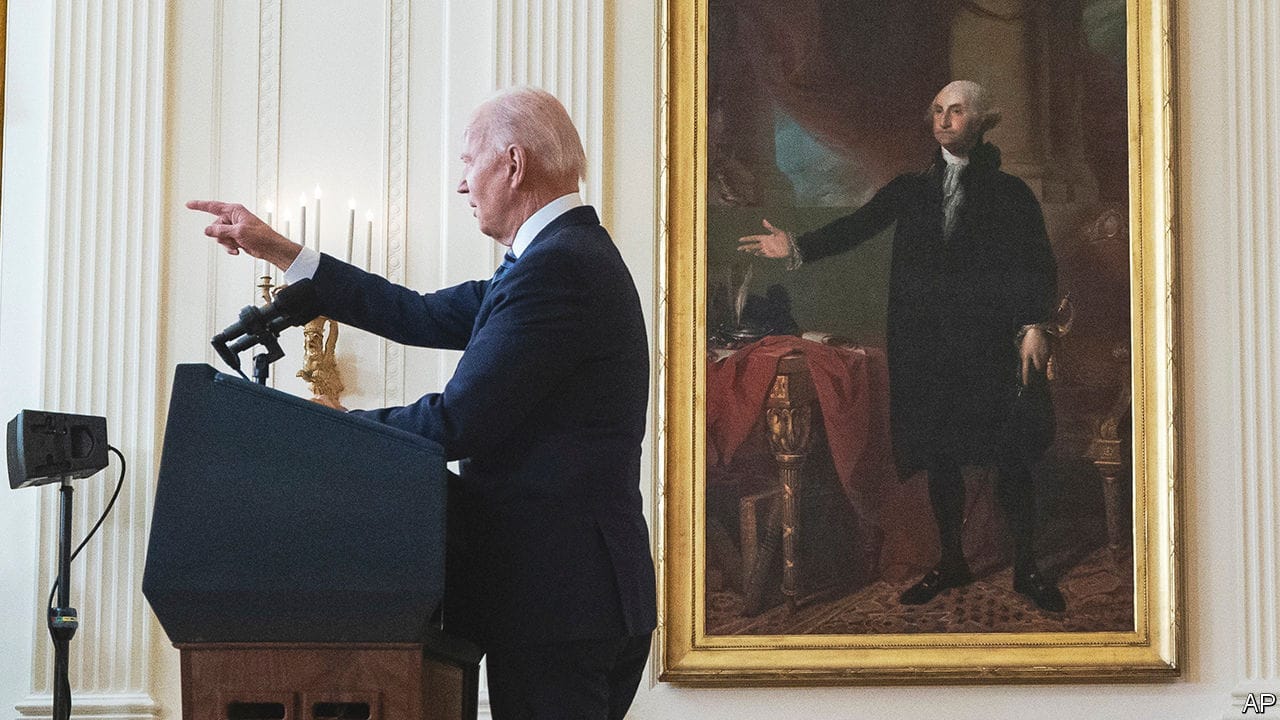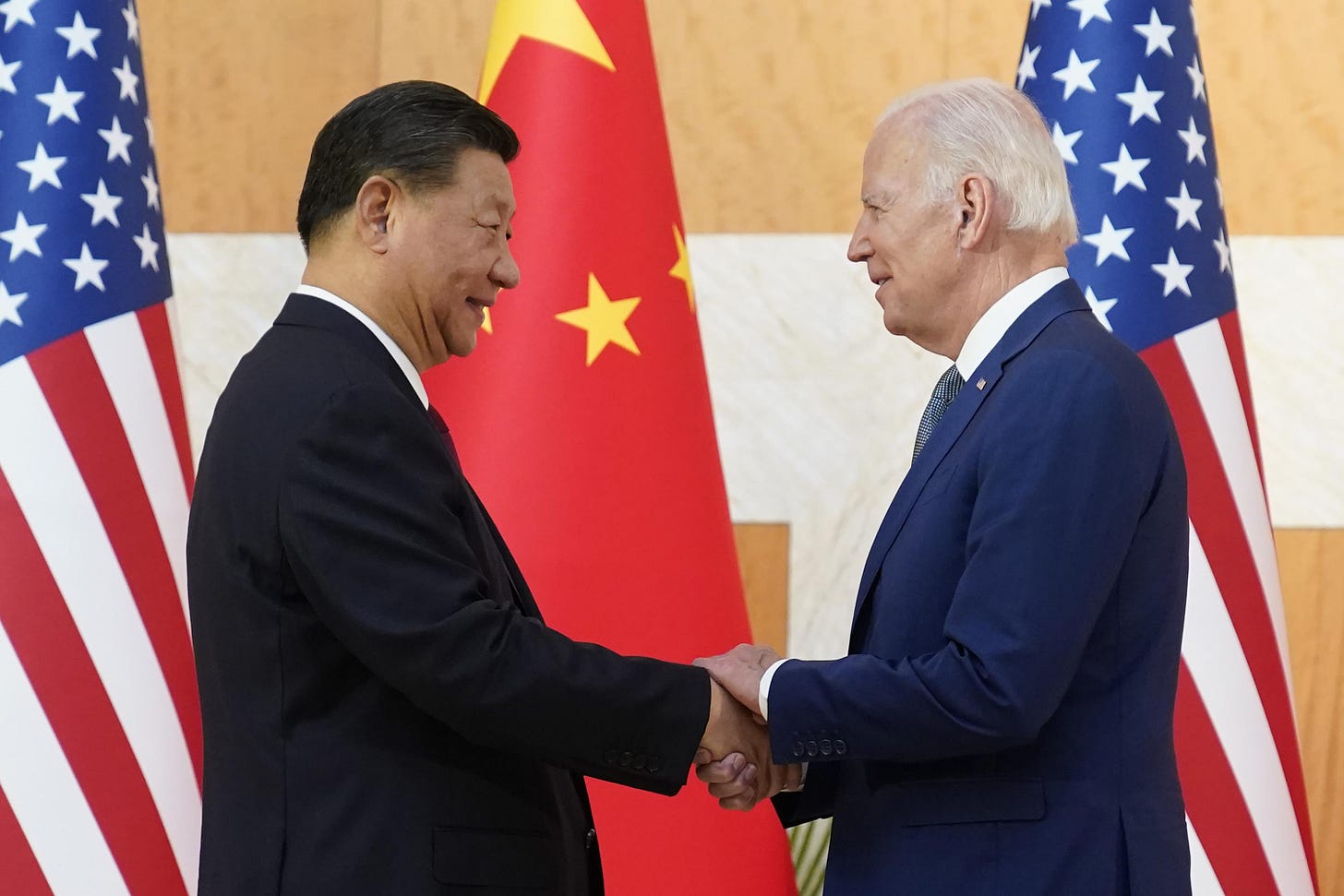Patriarchy: the upside
Patriarchy: the upside
A brief tweet thread by Twitter Phenomenon Wrath of Gnon on some lone founders who dedicated their lives to building important institutions and beautiful buildings.
(It would be reasonable to object that this isn’t really patriarchy, but that would be quibbling, merely illustrating that pedantry and linkbait are poor companions)




Democracy: forking the project
The video below captures a lively discussion with my friend Peyton Bowman in which we discuss my recent essay “Democracy: forking the project”. If you prefer audio it’s here.
I’ve circulated the abstract previously in this newsletter — and reproduce it below. Should you wish to read the essay itself, please email me for access to it on a Google doc.
Citizens’ juries — where a representative sample of citizens deliberate and decide on political issues — are increasingly popular. Representing constituents by sampling and deliberation rather than election and competition, they could deepen existing democracies as a check and balance to existing institutions. But the public understands their potential poorly because most juries have been one-off, single-issue exercises held by (and so, for) existing institutions.
With governance arrangements keeping funders at arm's length, progress could begin with a philanthropically and crowd-funded standing citizens' jury. Without any formal power, such a “People’s Council” could nevertheless shadow other houses of parliament/congress’s decisions and pass resolutions of its own. Had such a body existed, it would have been:
Harder to abolish carbon pricing in Australia,
Harder to negotiate such a ‘hard’ and damaging Brexit in the UK,
Harder to demonise nuclear energy in fighting climate change,
Easier for the US Senate to convict President Trump for inciting insurrection.
Greater attention would have been given ‘bread and butter’ issues like health, aged care and education and less to ‘hot button’ issues like immigration and crime. And those latter issues would have been addressed in ways that were more consensual and informed by the evidence. So policy would have been more effective.
Even without formal, constitutional power, where it disagreed with public votes taken on the floor of a house, it could call for an additional secret ballot, thus bidding for more influence and modelling the role it would have as a check and balance — in an officially constituted ‘people’s branch’ of government.
To develop its own capabilities and autonomy, the people’s branch must establish its own internal governance and leadership structures. To ensure their consistency with the egalitarian spirit of sortition and to minimise its capture by the self-assertive, charismatic and power-hungry, I suggest eschewing direct competition for office. The brevia is one such mechanism. It minimised factionalism and set the stage for 500 years of stability in Venice. It involves randomly selecting some ‘electors’ from the council and getting them to identify those most worthy of internal leadership roles. A ‘council of elders’ of past participants of citizens’ juries could be chosen by such means to act as a source of advice and support to current juries and as a repository of corporate memory and evolving traditions.
If the people’s branch were developed along these lines, it would become an ideal ‘honest broker’ to preserve the basic norms of procedural fairness on which peaceful government is founded. This is already happening in some jurisdictions — for instance, with a people’s council with the Michigan Independent Citizens Redistricting Commission. However, over time the people’s branch could expand to be given a substantial role in the appointment of judges and officials. America’s founding fathers attempted to constitutionally entrench such procedural norms into the US constitution via Senate confirmations, but that mechanism is now under partisan siege.


Next Week’s Newsletter
Next week’s newsletter is being assembled at this link in case you want to take a peek. Remember, things may still need some additional editing.
And now for a decade or two of complete madness

More from the Lowy Institute here.
Video: The arc of a Royal Commission bends toward justice

David Hume on social media
An excellent short piece on the relevance of an old concept. Taste. The extract begins quoting Hume.
Good or ill fortune is very little at our disposal: And when a person, that has this sensibility of temper, meets with any misfortune, his sorrow or resentment takes entire possession of him, and deprives him of all relish in the common occurrences of life; the right enjoyment of which forms the chief part of our happiness. Great pleasures are much less frequent than great pains; so that a sensible temper must meet with fewer trials in the former way than in the latter. Not to mention, that men of such lively passions are apt to be transported beyond all bounds of prudence and discretion, and to take false steps in the conduct of life, which are often irretrievable.
It is difficult to imagine a more vivid and accurate portrayal of someone consumed by Instagram envy or Twitter doomscrolling.
But what is to be done? How are people who have (intentionally or unintentionally) developed this “sensibility of temper” to resist it, to reclaim their very selves from its power over them? … [Hume argues that] “delicacy of taste is as much to be desired and cultivated as delicacy of passion is to be lamented.” How so? Hume’s distinction begins with this simple but profound point: “The good or ill accidents of life are very little at our disposal; but we are pretty much masters [of] what books we shall read, what diversions we shall partake of, and what company we shall keep.” This matters because
every wise man will endeavour to place his happiness on such objects chiefly as depend upon himself: and that is not to be attained so much by any other means as by this delicacy of sentiment. When a man is possessed of that talent, he is more happy by what pleases his taste, than by what gratifies his appetites, and receives more enjoyment from a poem or a piece of reasoning than the most expensive luxury can afford.
Or the shiniest Instagram post, for that matter.
Again, there is both simplicity and profundity here. By setting ourselves to cultivate a taste for what is beautiful and wise—and such taste does indeed require cultivation, being neither innate nor instantly grasped—we gradually emancipate ourselves from the power of others who would act upon us, which is to say, from the passions they seek to intensify in us. “And,” Hume continues
this is a new reason for cultivating a relish in the liberal arts. Our judgment will strengthen by this exercise: We shall form juster notions of life: Many things, which please or afflict others, will appear to us too frivolous to engage our attention: And we shall lose by degrees that sensibility and delicacy of passion, which is so incommodious.
Imagine that: Many things, which please or afflict others, will appear to us too frivolous to engage our attention. The cultivation of taste, in morals as well as in art, is neither snobbish nor elitist; it is, rather, the key means by which we emancipate ourselves from the tyranny of passions that the people who make our smartphone apps would like to see dominate us. … If there is a better guide to our current technocratic moment than David Hume, born 310 years ago, I don’t know who it is.
I’ll publish my own piece on taste from a few years ago in next week’s newsletter.


Assange
A good primer on where we are now and the widespread failure to defend basic liberties and the ease with which self-styled journalistic guardians of the truth like the New York Times and the Guardian defend their own institutional privileges, but then lazily perpetrate propaganda lines against Assange.
That Assange’s former collaborators have rallied to his defense and, by extension, their own, is an entirely welcome development, spurred in large part by advocacy from James Goodale, the former chief counsel of the New York Times who, half a century ago, masterminded the paper’s legal victory in the Pentagon Papers case—establishing the right of the press to publish classified information, a right now threatened by Assange’s prosecution. (Goodale also wrote about Assange for this magazine before his arrest.) But Assange has been the object of vindictive government attention for many years, even before being threatened with lifetime incarceration in a U.S. supermax dungeon. Why has it taken so long for the mainstream media to take a stand?
When I asked the Committee to Protect Journalists why Assange did not make their list, I was directed to a December 2019 statement: “After extensive research and consideration, CPJ chose not to list Assange as a journalist, in part because his role has just as often been as a source,” it reads, “and because WikiLeaks does not generally perform as a news outlet with an editorial process.” The newspapers that signed the November letter have similarly refused to claim Assange as one of their own. At the same time, other charges and smears have warped the public narrative, obscuring the threats to the First Amendment. Many of the outlets now expressing alarm have ignored or misrepresented key information about his plight along the way. It is crucial to reflect on these misdirections, especially as a blatant assault on press freedom now appears to be on the brink of success.
T he central allegation routinely deployed against Assange is that he recklessly released documents without redacting the names of individuals who might
suffer harm as a result. While the CPJ statement, for example, includes remarks by former New York Times editor Bill Keller denouncing the prosecution of Assange, Keller still describes him as publishing information “with no sense of responsibility for the consequences, including collateral damage of innocents.” (Keller, however, opposes the espionage charge.) On the occasion of Assange’s 2019 arrest, the Washington Post editorial board proclaimed that “unlike real journalists, WikiLeaks dumped material into the public domain without any effort independently to verify its factuality or give named individuals an opportunity to comment,” and called for his immediate extradition. (Asked whether the Washington Post still stands by that opinion, a spokesperson replied in October 2022 that the paper had “nothing additional to share beyond the editorial.”)
But the public record is replete with evidence that Assange went to considerable lengths to excise names from the documents before publishing them.
Alex Turnbull on why the (Liberal) Party is over
Ayn Rand
Thanks to Gene Tunny for drawing my attention to this snippet on reading last week’s article about Ayn Rand


Annette Baier: Is reason private or social?
Annette Baier married Kurt Baier, Austrian Dunera Boy and my Dad’s closest friend, confidant and mentor in the camps and in Melbourne after the war – at least until he met my mother. I only discovered her after Dad died, but she was a New Zealander by birth and it turns out she was half a generation on from the four philosophers of the Golden Age of Oxford philosophy associated with Elizabeth Anscombe, Iris Murdoch, Philippa “Trolley problem” Foot, and Mary Midgley. (As celebrated here and in the recent book Metaphysical Animals). They attended Oxford’s Somerville College from the late 30s on. Annette did so from 1952. And she followed a similar philsophical plath.
One of her principal ideas is summarised in the title of her Paul Carus lectures The Commons of the Mind. I was thrilled with the passage I cited in the tweet thread. It’s amazing how many of the bad habits of modernity go back to Descartes — even thought in the scheme of things he was a progressive figure. And so it is with our basic idea of reason as a private process of inference.


After quoting Descartes and various worthies (I skimmed the worthies), we get to Anthony Ashley Cooper AKA the Third Earl of Shaftesbury. He was an important influence on Adam Smith and here he turns Descartes's picture riotously on its head.




Here’s the link if you’d like to ‘borrow’ the relevant book from the Internet Archive for an hour or so.
Democrat presidential prospects
I’ve been wondering where all the Democrat talent is. Turns out, as you’d expect, there’s a lot of it about.
Rather than opting for progressives like Gavin Newsom in California or J.B. Pritzker in Illinois—both of whom have been unsubtly signalling that they are keen to run for president—Democrats could plump for Gretchen Whitmer, who just won handy re-election in an important Midwestern swing state, Michigan. The newly elected governors of Pennsylvania and Maryland, Josh Shapiro and Wes Moore, are both gifted speakers. Jared Polis, the freethinking governor of Colorado, is an effective tactician.
Then there are governors, like Andy Beshear in Kentucky and John Bel Edwards in Louisiana, who have proved capable of winning in red states. And Gina Raimondo, who was governor of Rhode Island before becoming Mr Biden’s secretary of commerce, is arguably the most effective member of the current administration.
If a senator must be chosen, there are mild-mannered newcomers who might suit a general election better than a progressive bomb-thrower. Raphael Warnock is an African-American preacher who won the crucial swing state of Georgia twice in two years. Mark Kelly has done the same in Arizona—and would have the distinction of being the first astronaut president that schoolchildren dream of.
All may be capable, but none will challenge the president unless he excuses himself. Almost every modern president who has garnered a serious primary challenger as an incumbent—Johnson, Jimmy Carter, George Bush senior—has gone on to lose. And no Democrat wishes to be blamed for ensuring their party’s loss.


How did the Chilean left crash their referendum?
I’ve been looking for an explainer of what’s been going on in Chile and, thanks to Brad Delong for pointing it out. Of particular interest was the way a government won 55 percent of the vote and then held a referendum on a new constitution that crashed— as in really CRASHED! Over two thirds of Chileans voted ‘No’ “including a surprising “no” majority from left-leaning working-class areas”.
It crashed not just because it left itself open to “a right-wing disinformation campaign”, but because (allowing for the usual kinds of misrepresentation that are standard operating procedure) it was the victim of a right wing information campaign.
In July 2022, just four months after the inauguration, the constituent assembly released a draft of the new constitution that would be put up to a referendum in the fall. Laden with 338 articles, it attempted to do everything for everybody who had a hand in formulating it. The proposals ran from meat-and-potato social justice and economic rights issues to proposals that might seem exotic or downright utopian. They included assigning human rights to nature; abolishing the Senate and replacing the House with ill-defined regional committees; and changing Chile into a plurinational state that recognized indigenous territory as almost a standalone nation. The draft also included gender rights, sexual rights and propositions that were foreign to most Chileans, or at best, relatively new in Chilean politics.
“It was way too much,” says Rene Rojas…. “There were two big categories of articles. On one side the basic social needs and rights like healthcare, education, housing, retirement to be guaranteed by the state. On the other hand, a group of more narrow identitarian social justice issues of all types: gender rights, ethnic rights, rights of nature that were all presented in a moralizing way as special protections for people suffering narrow forms of oppression – not universalist ideas. And in the campaign to approve the draft, that second set of rights that drowned out the more basic, universal ones. It inverted the national mood.”
If you create rights in all things Good, then for them to actually be rights (as opposed to the usual bullshit) those rights have to be exercisable against someone. If they are to have any effect they will advantage some to the disadvantage of others.
My objection is NOT that I’m not in sympathy with many of the economic rights. James Tobin argued for them in the 1960s and 70s and plenty of mainstream progressive economists would have agreed. But he didn’t think you get those rights by putting nice sounding words in a legal document (they had those kinds of rights in the Soviet Union). He thought you get them by fighting for and building the institutions that will deliver them. But political schmooze won’t get you far in doing that. You need to start moving towards your preferred destination, and use that to explain what you’re up to to build support to go further.
Campaigning fairy floss won’t get you there any more than ‘values statements’ hanging in your foyer deliver a functioning corporate culture. I’ve expanded a little on this a little further on Troppo and the original article is accessible here.


On understanding the other side of things
The only education I ever got was in history. And what history taught me is wrapped up in the story the premier English speaking philosopher of history of the 20th-century told about detecting the Albert Memorial. I wrote it up here, but the upshot is a point that’s both obvious and routinely ignored: if you disagree with someone, chances are you might not appreciate the way they’re looking at something. And that’s dangerous (don’t you think?) when countries are at war or considering it. All countries have terrible problems with this, but the United States even more than most. Perhaps this is always true of the global hegemon.
In any event, that’s why John Miersheimer’s advocacy of his perspective is so valuable, even if ultimately he’s wrong. He’s trying to get supporters of Ukraine to understand something they don’t agree with. Since none of us are gods, since we’re all extremely fallible, good faith disagreement is incredibly important. Yet its amazing how fast it goes out the window.
Which is why I liked this piece by Robert Wright, even down to its objection to the jingoist blinkers of American econoblogging wonderkindt Noah Smith.
This week Chinese leader Xi Jinping got a lot of attention by saying “Western countries—led by the US—have implemented all-round containment, encirclement and suppression against us, bringing unprecedentedly severe challenges to our country’s development.”
The Wall Street Journal called this “an unusually blunt rebuke of US policy” and the Washington Post called it “an unusually explicit public riposte of the United States by the Chinese leader.” And various commentators called it evidence of deep and irrational hostility. Fox News’s Laura Ingraham said that Xi “hates this country.” And social media pundit Noah Smith tweeted, “What's scary to me is that we heard similar rhetoric from Germany before WW1 and Japan before WW2.”
Funny he should mention World War I! Some social scientists consider that a paradigmatic example of nations leading the world to catastrophe through a misreading of each other’s intentions. President Theodore Roosevelt, in a letter he wrote a decade before war broke out, saw the dynamic at work:
[Kaiser Wilhelm of Germany] sincerely believes that the English are planning to attack him and smash his fleet, and perhaps join with France in a war to the death against him. As a matter of fact, the English harbor no such intentions, but are themselves in a condition of panic [and] terror lest the Kaiser secretly intend to form an alliance against them with France or Russia, or both, to destroy their fleet and blot out the British Empire from the map! It is as funny a case as I have ever seen of mutual distrust and fear bringing two peoples to the verge of war.
Economics and morals: Brad Delong on the Silicon Valley Bailout
When a bailout doesn’t cost a dime. A fun working through of the issues by Brad Delong.
I, in my Benthamite mind, do not think it is terribly useful to object to steps that help some and hurt none as “bailouts” and thus as things that should not be done. We ought to cultivate habits of mind that start from the belief that anything Pareto-preferred to the present state of affairs is good thing to do, even though it is certainly not the best thing to do; and even thoug the best thing to do is almost surely not Pareto-preferred to the present state of affairs.
Dean [Baker] might say that whie this position of mine might be fine as a general rule, it certainly should be suspended in this particular interest. He might say that the ecology of Silicon Valley Bank is overwhelmingly composed of those who have shown no true mercy to others. He might say, rather, that they exult, in their infantile libertarian techbro manner, in inequality that benefits them—that they say that those who have not benefited from the global value-chain and now the info-biotech economy deserve to be poor and thus to be subject to “evolution in action”.
If he were to say this, I would admit that he has a point.
I look at Peter Thiel, at Elon Musk with his “my pronouns are ‘Prosecute/Fauci’”, and at their fanboys. When I do so, I do think: These people are not members of my civilization. If we treat them as such we are asking for trouble. We should instead treat then as dangerous resources: things that we can exploit if it is possible to do so safely, but otherwise need to neutralize.
But, once again, I do not think that that is a good way to think: a very large circle of people doing all kinds of things will benefit from the costless support of the depositors of Silicon Valley Bank that the Biden administration undertook on Sunday.



















